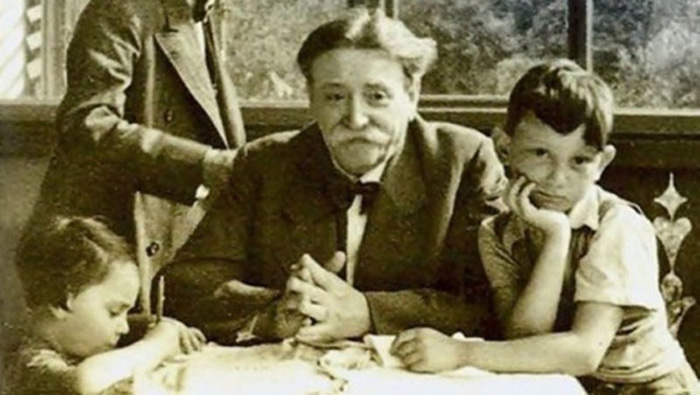
Eduard Bloch, an Austrian physician from Linz, occupies a peculiar niche in history.
A Jew by heritage, Bloch treated a young Adolf Hitler and his family for years, culminating in his care for Klara Hitler during her fatal battle with breast cancer.
This unlikely relationship between a kind doctor and his future genocidal patient continues to intrigue historians.
Bloch, born in 1872 in Frauenberg (today Hluboká nad Vltavou, Czech Republic), embodied the assimilated Jew of the Austro-Hungarian Empire. After studying medicine at Charles University in Prague, he served in the military before settling in Linz. There, he established a reputation as a compassionate physician, particularly among the poor, earning the moniker “the poor man’s doctor.” His willingness to treat at any hour and adjust fees based on a patient’s ability to pay reflected a deep sense of social responsibility.
Bloch’s path intersected with the Hitler family in the early 1900s. Klara Hitler, plagued by health issues, became one of his regular patients. Her struggle with breast cancer, diagnosed in 1905, would be a defining moment in their connection. Bloch’s care, often provided at a reduced cost, seems to have left a lasting impression on a young Adolf. Letters and postcards, signed with a grateful “A.H.,” expressed deep appreciation for the doctor’s kindness.
This gratitude would be tested by history’s cruel twist. The rise of the Nazi party placed Bloch, a Jew, in a precarious situation. Despite the implementation of the Nuremberg Laws targeting Jews, Hitler, for reasons that remain unclear, intervened. He deemed Bloch an “Edeljude” – a “noble Jew” – exempt from the worst aspects of Nazi persecution.
The exact motivations behind Hitler’s actions are subject to debate. Some speculate it stemmed from a genuine sense of gratitude for Bloch’s past care. Others believe it was a cynical ploy to deflect criticism of Nazi ideology’s inherent hypocrisy. Regardless of the reason, Bloch was ostracized but remained relatively unharmed within Austria until the Anschluss, the Nazi annexation of Austria in 1938.
Following Kristallnacht, the violent pogrom against Jews in Germany, even Hitler’s protection couldn’t fully shield Bloch. Recognizing the escalating danger, Hitler facilitated Bloch’s emigration to the United States in 1939. This act of clemency towards a Jew stands in stark contrast to the horrific fate that awaited millions under Nazi rule.
Bloch settled in New York, forever marked by his unusual connection to Hitler. He died in 1945, just weeks before news of the full extent of the Holocaust reached the world.
The story of Eduard Bloch is a complex one, highlighting the contradictions within the Nazi ideology and the power of individual relationships in the face of historical upheaval. It serves as a reminder that even amidst the darkest chapters, flickers of humanity can persist, even if their coexistence with evil remains deeply unsettling.

Theodore Lee is the editor of Caveman Circus. He strives for self-improvement in all areas of his life, except his candy consumption, where he remains a champion gummy worm enthusiast. When not writing about mindfulness or living in integrity, you can find him hiding giant bags of sour patch kids under the bed.
